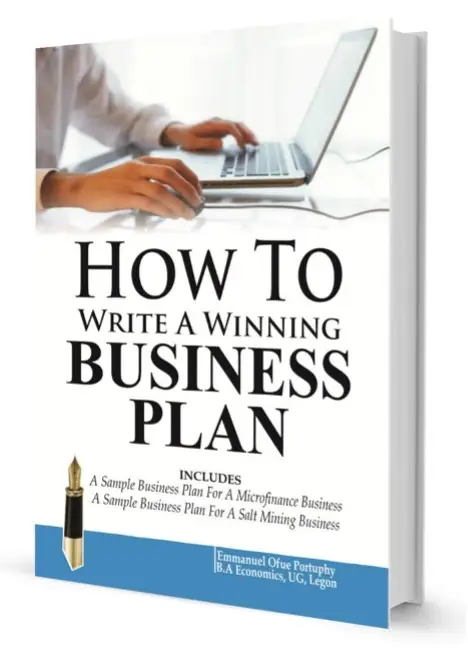Have you been able to analyze your competitors as a business owner? What is the competition? Entrepreneurs often neglect this question. They tend to feel that their product is so superior that competition will not be significant. Underestimating the competition can be fatal. Competitors that are well established and prospering are doing so for good reasons. You must identify how they do what they do to be successful and strategize your operations to match them.
You must be concerned about the competition, so this issue must be addressed directly by listing all the businesses that will be competitors and assessing their respective strengths and weaknesses. Describe how you will compete with them and what you expect their response to your marketing plans.
Companies pursue new ideas simultaneously, vying for first-to-market advantage, and many may also boast strong financial backing. Be sure to explain why you believe you will claim the edge. You should also address future competition, mainly if you think there are relatively low barriers to entry for potential new competitors. A concise and honest appraisal of your competition will lend credibility to your business plan.
IDENTIFYING YOUR COMPETITORS
Who are your direct competitors?
Who are your direct competitors? A direct competitor deals in an identical product as yours. For example, GOIL and SHELL are direct competitors of each other as they provide the same fuel vending service, while game and Shoprite are directly competing retail outlets.
Who are your indirect competitors?
These are competitors that sell similar products or products that fulfil similar needs. For example, two car rental companies in a town would be in direct competition with each other, but both companies would be in indirect competition with a bus line or a taxi service. Who are your potential competitors?
These businesses are likely to venture into the market and compete with you. Sometimes, there are high entry barriers, making it difficult for new businesses to enter a market. What obstacles can you put in place to protect your market share?
Who are the substitute products on the market?
A substitute is a product different from yours but which can satisfy the same need. Email is a substitute for fax; a consumer might consider Pepsi a perfect substitute for Coke. What products can be substitutes for yours?
GENERAL STRENGTHS OF YOUR COMPETITORS
What are their competitive advantages?
Competitive advantage is a business’s strategic strength over another, giving it a larger market share and higher profits. It is usually in the form of some unique technology or skill. Do your competitors have advantages that will make life difficult for your business?
How will you counter their unique areas of expertise?
If your competitors have a unique area of expertise, how are you planning to counter this to gain a competitive edge? What will you do differently to achieve a sustained advantage in the market?
What are your competitors’ main target markets?
They may be targeting different customer groups from yours; hence, they need to know all the market groups they are targeting and to prepare adequately for them. For instance, while you may be targeting students with your calculator, your competitors may be targeting accountants, and this can afford you the advantage of a larger student market share.
What are their promotion strategies?
Promotion is targeted at informing and persuading consumers to buy your product, creating awareness of its existence among potential or existing clients. Promotional strategies include advertising, media planning, sales promotion, and public relations.
What do their customers like about them?
Identify what your competitors do, especially for their customers, that makes them remain loyal to them. This special treatment gives them a competitive advantage; hence you need to know what it is.
What new products are they developing?
Just as you may be planning to introduce new products in the future, your competitors may already be developing new ones. Find out what these products of theirs are so you make plans to handle their effects on your business.
If possible, you could also develop similar products in the future to compete effectively with them.
WEAKNESSES OF YOUR COMPETITORS
What target markets are they missing or underserving?
There are different target market groups for every product. Your competitors may be focused on some groups forgetting others which could be an advantage for you to exploit. If you notice that your competitors are focused on workers, they may be missing out on students, which you can exploit.
What do their customers dislike about their products?
Competitors may be poorly satisfying their customers. Find out what their customers dislike and use it to your benefit. You can do this by interviewing consumers to ascertain their impressions of the competing products on the market. You can equally use surveys to do this. You must gather this information to compete more effectively.
Is their marketing message adequate for the target market?
Are the marketing efforts of your competitors good enough? Is the market being impacted by their efforts? Are customers complaining about not knowing enough or understanding your competitors’ marketing messages?
Are your competitors promoting only the features or benefits of their products? If they are, it is an advantage you can exploit. Do you remember the difference between features and benefits?
Are they using the right marketing strategy to reach their target market?
Considering the market groups your competitors have targeted, do you think the communication medium they use is the best? Do their messages get to their target markets understandably? Can you do better communication considering this?
OPPORTUNITIES EMERGING
What market segments are emerging?
Identify new trends in the market your competitors are not pursuing. Are there opportunities for the growth of your business in the market? These opportunities may be new areas of need you may not have known about before venturing into the market.
Are there newly emerging groups to which you could sell? These opportunities can potentially expand your business in proportions you never imagined. Constantly be on the lookout for such opportunities and do well to exploit them fully.
What are the future areas of growth in the market?
What areas do you perceive will grow to become a part of your market? For example, if your business is a restaurant in a small town, a future area of growth could be the office buildings that could be built in the area with the workers becoming clients of your restaurants for their lunch.
Can you develop unique technology that your clients will need?
Suppose you operate in an industry where everybody uses the same basic technology. Is there any way you can develop a unique technology to enhance your operations and make you different? For example, if you were a carpenter with all your competitors using a hammer as the primary technology, can you introduce a nailing machine as a difference or some specialised data management software for your operations?
Can you shorten the delivery time or reduce costs?
Your market may have standards in delivery time, but is there any way you can go beyond these standards, like shortening delivery time and lowering your fees? Your ability to do this will significantly endear you to your clients, as they will see you as being able to go beyond the status quo to do what no other business bothers to do for them. Can you imagine the look on the face of your clients if they expect you to finish a project in a month and you finish in a fortnight without compromising on quality?
THREATS TO BE FACED
Can competitors drive you out by reducing their prices?
Can your competitors reduce their prices to affect you? If they do, are you in the position to respond without affecting your business adversely? Your competitors can do this when they have the financial resources. They will seek to attract more clients through the lure of lower prices. You are in trouble if you cannot reduce your price to march theirs. Is there any way you can handle this move of theirs if it happens?
Are there any detrimental government policies to your business?
Are there any government policies that can affect your business negatively? For example, if you are an importer of secondhand fridges, will a government policy banning the importation of used fridges affect your business? These policies can cripple your business, and you must always be looking for them to protect your business.
Is the size of the market declining?
Is the size of the market shrinking? This could be due to a new, better substitute on the market. For example, if you are a trader in fax machines, with the introduction of email, many more people will prefer to use the latter, reducing your market size.
Is there room for another business in the market?
Is it likely another business can join the market? This is most possible in a perfectly competitive market but is virtually impossible in a monopolistic market and, to a smaller extent, a duopoly or oligopoly.
Is the market saturated?
A saturated market is where almost every prospective client has your product, so no new client is available. At this point, further growth can only be achieved through product improvement, market size expansion or an increase in demand.
NICHE
Can you identify a market niche for your business?
Now that you have analysed the industry, your product, your customers, and your competition, you have a clear picture of where your business best fits in the market. A niche is a small, specific, well-defined segment of the market to which products are targeted.
That is a unique group of people with a particular need for your product and to whom you can exclusively sell. A restaurant in a multi-storey office complex may have its niche as the employees of the businesses operating in the building.
COMPETITIVE COMPARATIVE ANALYSIS
This analysis allows you to compare your business with your competitors. There are several comparison areas, but the key areas that can impact revenue are listed in the table for this purpose.

































